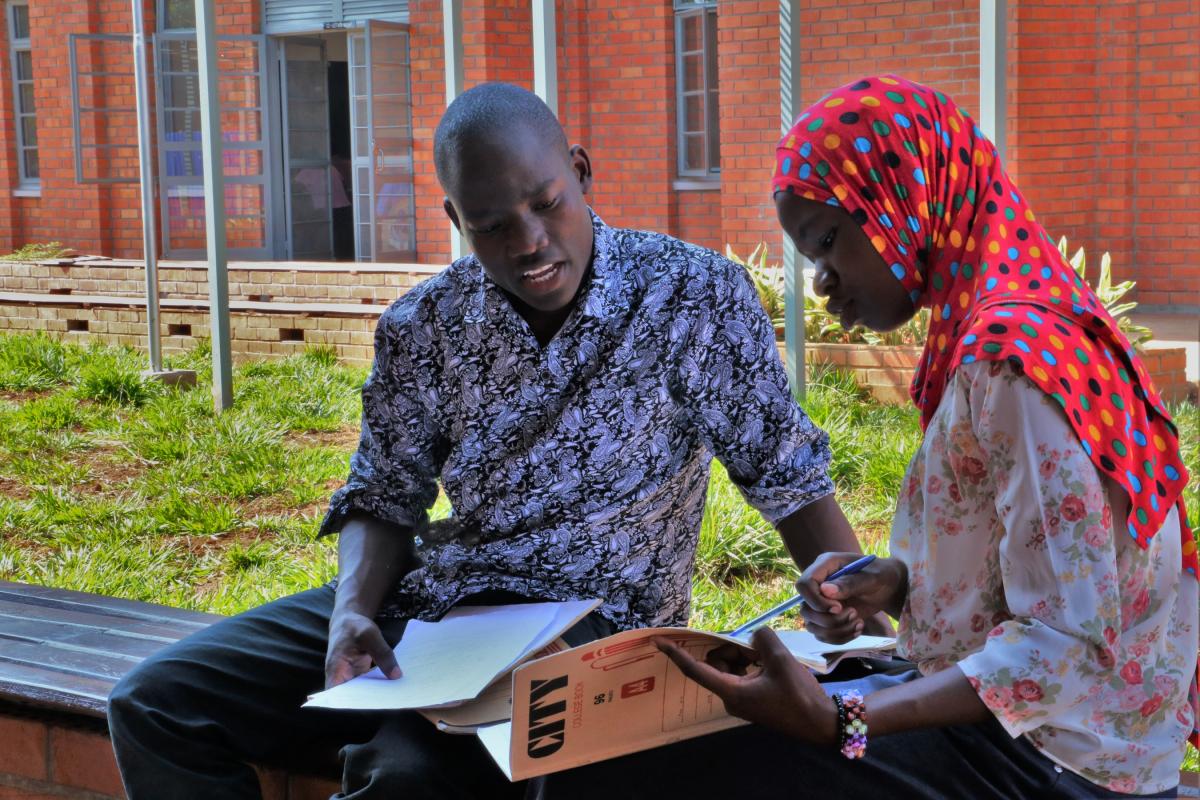Enabel Makes Remarkable Strides in Improving Teacher Education
Through the
Teacher Training Education (TTE) project, Enabel has made tremendous
achievements to the education sector. The project
has One common goal which is to Improve Secondary Teachers Education in the
National Teachers’ Colleges.
The
TTE Project as per the framework of the
Ugandan-Belgian Governmental Cooperation is jointly implemented by Ministry of
Education and sports (TIET department) and Enabel (Belgian development agency).
The project started its second Phase in 2017 and it will go through 2021.
The beneficiaries of the project
include: 5 National Teachers’ Colleges (Kabale, Kaliro, Mubende, Muni and
Unyama), TIET department, Construction Management Unit, Procurement Disposal Unit
and partner secondary schools surrounding the NTCs (3 per NTC).
The project has 3 components:
The Institutional development component that strengthens the colleges and
the Ministry of Education and Sports Management systems. Within this component
support is provided to the colleges to develop their planning, finance, human
resource and students’ follow-up. Similarly, support is also given to the
Ministry of Education and Sports to improve management of the
Teacher/Instructor, Education and Training department.
Among the
achievements in this component are:
·
A
supervision and monitoring system has been put in place to support the 5 NTCs
and TIET department. This system has harmonized the NTC work plans and
monitored results at college level (committees, NTC management) and national
level through the quarterly performance reviews.
·
The project
has strengthened the capacity needs for NTCs through capacity development, ICT
management and maintenance and creating safe learning environments. Within this
area, the project has prepared capacity development workshops for IT managers
in colleges known as the IT days, procured equipment to improve teaching such
as laptops, computers, cameras, projectors etc. and provided open-source
software for the NTCs.
·
In order to
improve academic management, the project installed a management information
system known as ‘Smart Campus’ within NTC Muni and Kaliro and supported support
supervision in the colleges through the implementation and dissemination of the
Support Supervision guidelines and training of mentors.
·
To improve
human resource management, the project has development and implemented a pilot system
of time on task, implemented and disseminated Continuous Professional
development guidelines that are aimed at advancing the skills and knowledge of
teaching staff.
·
The project
has also set in place a maintenance mechanism to improve the maintenance
capacity of the NTCs. Two national workshops were held to this effect and there
is on-going procurement for equipment such as energy saving kitchens, solar
panels, water harvesting among others that will reduce the operational costs of
NTCs.
·
Similarly, support
has been provided to the TIET department through data entry in the teacher
registry process, partitioning of the office space, provision of IT equipment
and organising teacher education working group meetings.
·
In order to
strengthen the Construction Management Unit (CMU) and Procurement Disposal Unit
(PDU), the project is providing IT equipment, site report managing software and
a shelving and archiving room for PDU.
While
institutional management is an important area of support to improve the quality
education, the project also extends its support to the area of pedagogy; which
is the method and practice of teaching.
Through the pedagogy component, the project has achieved the following:
·
It has
strengthened the professional competencies of the NTC academic staff in
revision of the general methods course (syllabus for professional studies, data
analysis for the use of ICT in colleges), andragogy training process (training
of mentors with support from national experts) and participation in different conferences
such as the Deta conference held in Rwanda in August 2017, E-learning
conference in September 2017 held in Mauritius on ICT4Education and the Aga
Khan University conference on Teacher education in October 2017.
·
The project
has facilitated access to information and quality pedagogical content by
creating user-friendly libraries. Libraries have been stocked with updated book
collections, installation of the Koha library management system in all 5 NTCs,
procurement of library kit (photocopiers, binding machines, laminating and
papercutting machines), development of a librarian competency profile and
membership subscription to the Uganda Library Information Association (ULIA).
·
Developed
and institutionalised a pilot system of Continuous School Practice that is
geared towards providing opportunities for teacher trainees to gain experience
and teaching skills in surrounding partner secondary schools. To this effect, a
Guide and Toolbox for implementation have been drafted and disseminated along
with motorbikes to enable teachers to overcome their transport constraints.
·
The project
has created a network of partner secondary schools for school practice and
strengthened their pedagogical capacities through creating official
collaborations with 17 partner secondary schools, training them on Active
Teaching and Learning (ATL), providing them with a start-up kit that includes
pedagogical materials and a computer and organising gender missions geared
towards creating a safe learning environment and eradicating gender based
violence in schools.
Providing
institutional and pedagogical support is one way to improve the quality of
secondary education. In order to take a step further, the project has made a
substantial investment in infrastructure with the purpose of creating a
conducive learning environment.
Through
the infrastructure component, the
project has rehabilitated, expanded and equipped college facilities.
Among the
achievements are:
·
Finalising
the design process to improve the pedagogy facilities (laboratories, classrooms
and libraries) for NTC Mubende and Kabale and the accommodation facilities for
staff and students in Muni and Kaliro. The architectural designs and
infrastructural set-up take into account several important factors that focus
on innovation, sustainability, energy efficiency and the natural environment.
Classrooms benefit from sufficient natural daylight and a well-designed cross
ventilation sets off the higher tropical temperatures without any artificial
intervention.
·
Conducting
Safe Learning Environment (SLE) walks in colleges in order to identify and
address specific security needs such as provision of separate washrooms for
female and male students, setting up security lights within the compounds among
others.
Laatste nieuws van dit project
Geen nieuws

